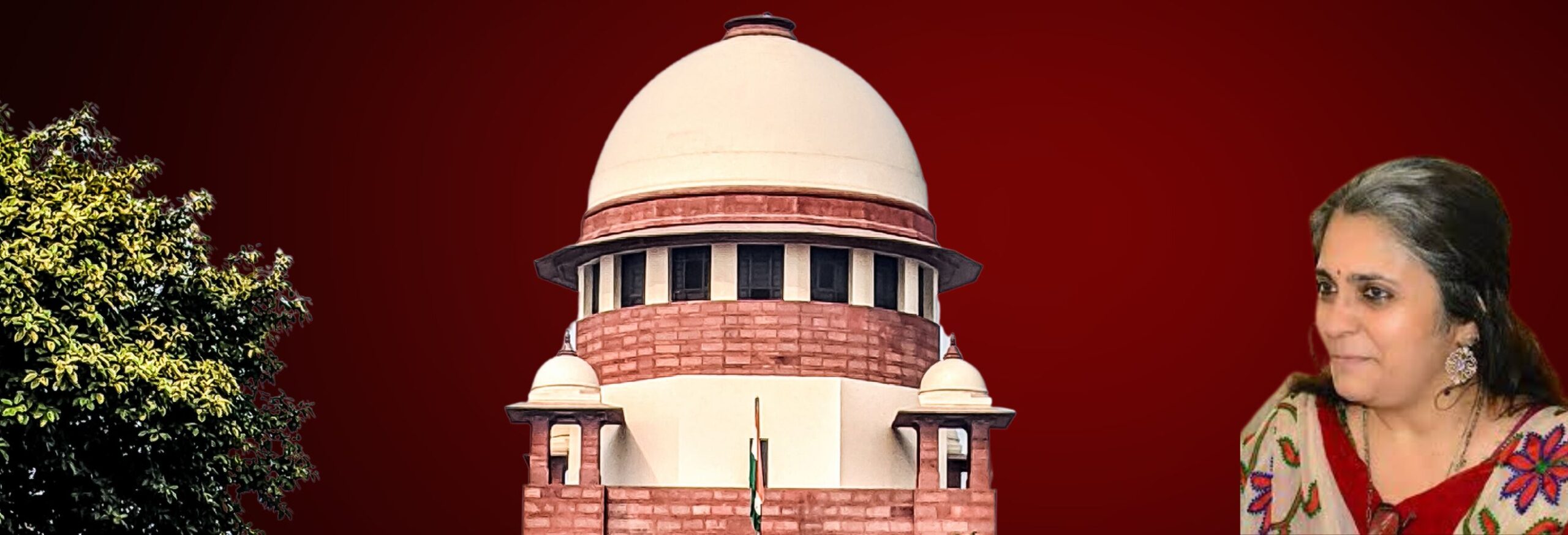
By K Raveendran
A Supreme Court bench of Justices B R Gavai and P K Mishra are set to take up the crucial hearing of Rahul Gandhi’s appeal against the upholding of his conviction by the Gujarat High Court on August 4. The apex court has issued a notice to the Gujarat government as well as sought a response from BJP MLA Purnesh Modi, whose complaint led to the conviction and maximum sentence of two years for the Wayanad MP.
It may be a bit farfetched to look for patterns in court judgments, but there are endless possibilities in looking for common threads in comparable verdicts. A most striking case in this respect is the decision by a three-bench that included Justice Gavai himself to overturn the verdict by the Gujarat High Court that refused to grant bail to activist Teesta Setalwad.The Supreme Court intervened effectively and granted her regular bail. Most importantly, both cases involved a common judge at the level of the high court.
In the Teesta Setalvad case, a three-judge bench of Justices BR Gavai, AS Bopanna, and Dipankar Datta asked a number of incisive and critical questions about the high court’s judgment. If creative GPT were to examine the two cases, there would be plenty of scope for comparisons.
Further, a remark by Justice Gavai in the course of the proceedings in Rahul Gandhi’s appeal would also give Chat GPT ground for a lot of potential for interpretation. Justice Gavai referred to the detailed order of the Gujarat HC, which ran into over 100 pages, and exclaimed this was a ‘peculiar thing we are seeing from Gujarat HC’.
In the Teesta Setalvad petition, Justice Gavai had right at the outset flagged that the order of the Gujarat High Court was ‘contradictory’ because the High Court, on the one hand, said that it cannot consider the question of whether a prime facie case at the stage of bail, but at the same time, it elaborately discussed the chargesheet evidence to ‘almost hold her guilty’. “There is self-contradiction in this order,” the Justice Gavai said.
“How can we ignore one part of the order and consider only another part? Then we will have to ignore the entire order,” Justice Gavai said. The court’s order further said: “On one hand, the learned judge has spent pages to observe how it was unnecessary – rather not permissible – at the stage of granting bail, to consider whether a prima facie case has been made out. On the other hand, the judge observes that a case under Section 194 of the Indian Penal Code is made out. The findings are totally contradictory, to say the least.”
The Supreme Court expressed surprise that the High Court’s approach in holding that the offences should be presumed to be admitted since the petitioner did not file any petition to quash the chargesheet. Obviously, the high court erred in presuming Teesta guilty simply because she did not approach the court to challenge the FIR.
Justice Gavai’s reasoning that if one part of the order is defective, the other part also becomes invalid is extended to the interpretation that if the argument applied to a particular case is defective, there may be chances of misinterpretation in another case as well if the two cases are approached in the same manner by the adjudicator. This opens up tremendous scope for the results of Rahul Gandhi’s petition to end up in a positive manner.
Some of Justice Hemant Prachchhak’s remarks in the decision upholding Rahul’s conviction and the refusal to grant a stay have already become controversial, particularly the contention that no injustice would be caused to Rahul Gandhi if the conviction is not stayed. According to reports, the judge noted that at least 10 criminal cases pending against Rahul and stressed that it was of utmost importance in politics that purity is maintained. Even after the present case, some more cases had been filed against him, the judge added and even referred to the one filed by grandson of Veer Savarkar. “In anyway, conviction would not result in any injustice. The conviction is just and proper. There is no need to interfere with the said order. Therefore, the application is dismissed,” the judge has been quoted as saying in the order.
“Refusal to stay conviction would not in any way result in injustice to the applicant. There are no reasonable grounds to stay conviction. The conviction is just, proper and legal,” the court order said.(IPA Service)
The post Supreme Court Approach In Teesta Case Opens Up Array Of Possibilities In Rahul’s Case first appeared on IPA Newspack.


